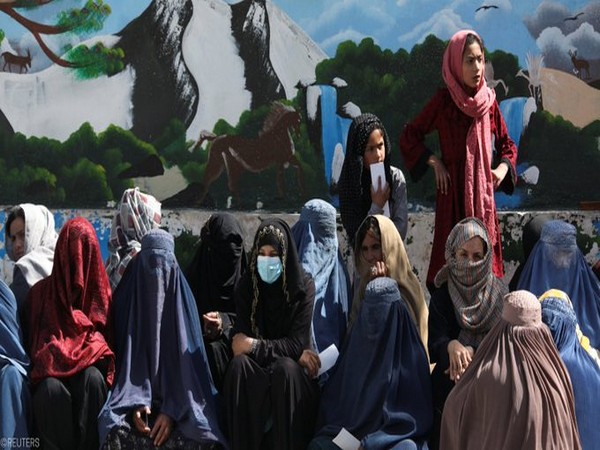

As many as 11.6 million women and girls are no longer receiving vital assistance in Afghanistan, the US envoy to the UN, Linda Thomas-Greenfield said on Saturday in the wake of the Taliban’s decision to ban women from contributing to humanitarian aid efforts in the country.
“The Taliban’s decision to ban women from contributing to humanitarian aid efforts is already having terrible consequences. According to the UN, 11.6 million women and girls in Afghanistan are no longer receiving vital assistance. This dangerous, oppressive ban must be reversed,” Thomas-Greenfield tweeted.
On December 24, the Taliban issued a decree banning women from working in non-governmental organisations (NGOs). This came after they had already suspended university education for women and secondary schooling for girls until what they termed further notice.
On Thursday, UN High Commissioner for Refugees, Filippo Grandi joined the heads of other humanitarian groups in calling on Afghanistan’s de facto authorities to reverse its directive that restricts women from working with NGOs.
“Preventing women from humanitarian work is a grave denial of their humanity. It will only result in further suffering and hardship for all Afghans, especially women and children. This ban must be lifted,” Grandi said in a UNHCR statement.
The UN agency said more than 500 women staff work with UNHCR’s 19 NGO partners in Afghanistan, serving nearly a million women and girls. The most recent restrictions will force the UN Refugee Agency to temporarily stop critical activities in support of Afghan people, especially women and children.
In addition to providing critical humanitarian aid, women staff are at the forefront of efforts to find solutions for Afghans affected by four decades of conflict and persecution, including millions of refugees and internally displaced people.
Some 3.4 million people are currently displaced inside Afghanistan and another 2.9 million are displaced outside the country as refugees, according to the UN.
Across Afghanistan’s 34 provinces, women have been actively leading and engaging in the humanitarian response, enabling UNHCR to reach over six million Afghans since August 2021. With so many other restrictions on women, this new decree will devastate Afghanistan’s population, comprising an estimated 40 million people.
UN High Commissioner for Human Rights Volker Tur this week also called on the Taliban to revoke a raft of policies that target the rights of women and girls, noting both the “terrible, cascading effects” on their lives and the destabilizing risks such policies pose to Afghan society.
“No country can develop – indeed survive – socially and economically with half its population excluded. These unfathomable restrictions placed on women and girls will not only increase the suffering of all Afghans but, I fear, pose a risk beyond Afghanistan’s borders,” Turk was quoted as saying in a press statement by United Nations Human Rights Office.
The UN rights chief urged the de facto authorities to ensure the respect and protection of the rights of all women and girls.